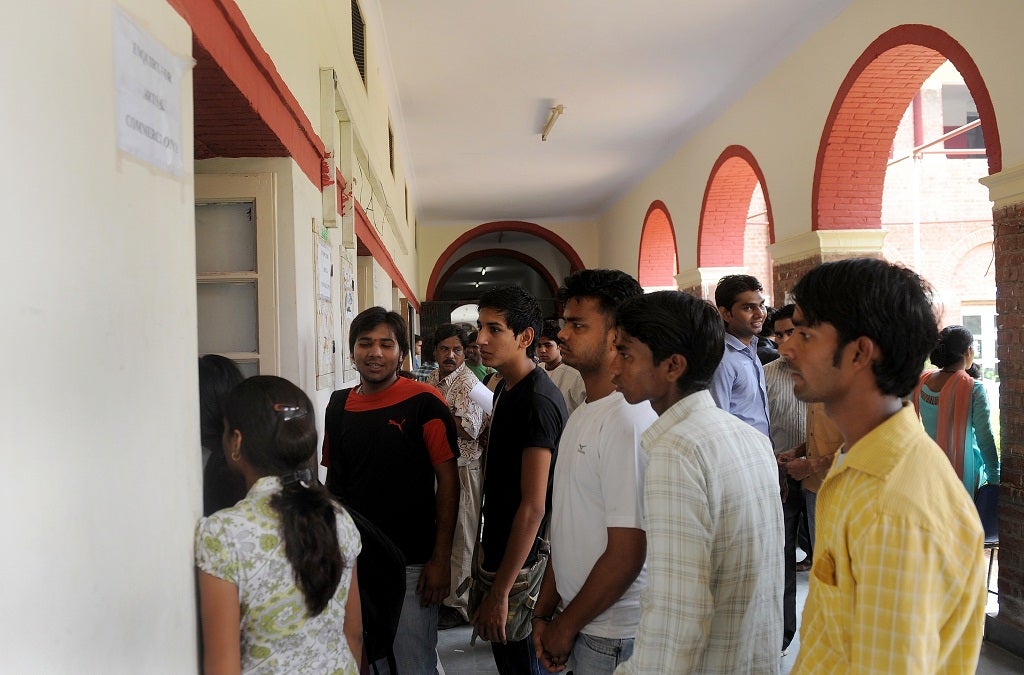We may want closer ties with Commonwealth countries post-Brexit, but our immigration data suggests the opposite
India’s rapidly growing middle class want to send their children to the best places in the world and they’re willing to pay for it – but after hearing our rhetoric on immigration they’re sending them to Australia, Canada and the US


What would a decent and sensible British immigration policy look like? Would it involve lots of students coming to the UK and spending money? How about encouraging students from countries we have historical ties with, and who speak English? And what about if it helps our international objectives too?
If you think all these are good ideas then forget about it. You have to be living on a different planet, where government policy is supposed to make sense.
How the Tories treat international students is a perfect example of policy that takes voters for fools, while making them poorer. This government has a target to reduce net migration they know they can’t reach. In fact they are moving further away from it. So rather than abandoning a silly target, they stick to it because apparently it shows they are ‘listening to the concerns of voters’. And the victims of this policy are the very group that benefits Britain the most: students.
Immigration figures out today show the number of Indians coming to study in the UK has declined a further, to 11,121 over the last year. For comparison, over 18,000 Indian students came to UK in 2010. The drop has been remarkable. Overall too, the number of international students coming to Britain is down.
India’s rapidly growing middle class are ambitious, focused on education and have a global outlook. They want to send their children to the best places in the world, and they’re willing to pay for it.
Moreover, letting British businesses pick from (locally trained) foreign talent not only helps our economy, it creates new jobs for British workers. Most of them also speak English well, having grown up in a country where it is the legal and administrative language. India is now the third-largest investor in Britain and its companies are our largest manufacturing employer. So closer integration helps the British economy in other ways too.
But, government officials say, with a shrug, we have a ‘target’ to reduce immigration. It now gives them hardly any time to look for a job after their studies. Theresa May even tried to deport thousands of foreign students on the basis of hearsay evidence that fell apart in court. But the damage was done. Indian students are increasingly choosing to study in Canada, Australia and the US instead. The Indian government and businesses are angry but the government won’t budge.
A survey by British Future found that 60 per cent of Britons say international students are ‘beneficial’ to areas they live and study in. They don’t want to see a reduction in the number of international students (including 66 per cent of Conservative voters).
So where are those who say they want a sensible debate on immigration? When it comes to the crunch they go silent.
The madness of government policy in action over international students echoes the Brexit debate. We were told Britain should look beyond the EU to the world’s biggest emerging economies. That we should get closer to the Commonwealth. That we should make trade deals of the future than stay tied to a ‘declining’ EU.
Instead, we get politicians who, because they don’t want to admit uncomfortable facts, keep making wild promises they know they can’t keep. This not only hurts our economic prospects now, but angers the very people we need on side for the future. British voters were treated as fools before the EU Referendum, and they are being treated the same now.
Join our commenting forum
Join thought-provoking conversations, follow other Independent readers and see their replies
Comments
Bookmark popover
Removed from bookmarks